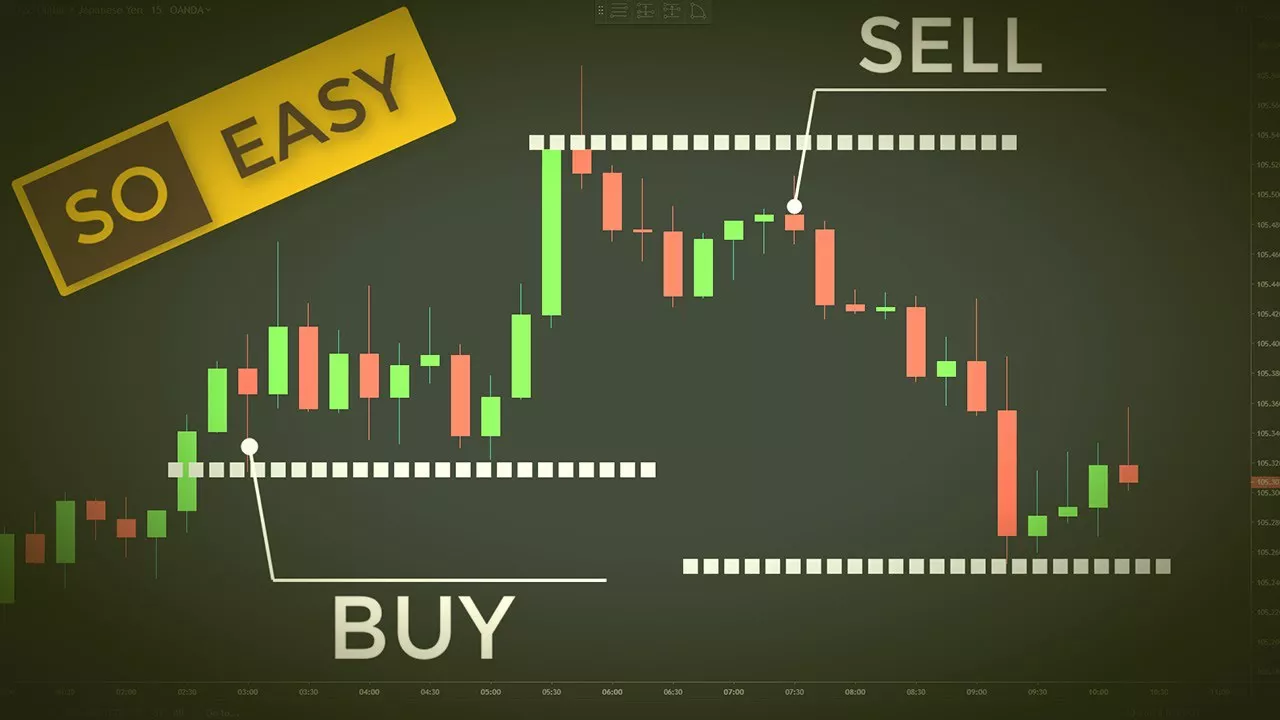Investing in the stock market requires knowledge of various types of stocks and understanding their growth patterns. Among the diverse types of stocks available, secular growth stocks are increasingly popular due to their long-term growth potential. This article will cover everything you need to know about secular growth stocks, including what they are, their characteristics, examples, and how they differ from other types of stocks.
Understanding Secular Growth Stocks
Secular growth stocks are shares of companies that are expected to grow consistently over the long term, largely independent of broader economic cycles. These companies tend to operate in industries or sectors with strong, ongoing demand, allowing them to generate steady revenue and profit growth, regardless of short-term economic fluctuations.
Key Characteristics of Secular Growth Stocks
Long-Term Demand Drivers: Secular growth stocks benefit from strong, sustainable demand. This demand might be driven by technological advancements, changing consumer preferences, or demographic shifts.
Resilience to Economic Cycles: Unlike cyclical stocks, which experience growth and decline in line with economic cycles, secular growth stocks maintain steady performance even during economic downturns.
Innovation and Market Leadership: These companies are often leaders in innovation, providing products or services that drive transformation within their industries.
High Revenue and Earnings Growth: Due to constant demand and market expansion, secular growth companies generally report high revenue and earnings growth, often outpacing that of cyclical or defensive stocks.
Premium Valuations: Investors are usually willing to pay a premium for secular growth stocks because of their high growth potential and resilience, resulting in higher price-to-earnings (P/E) ratios than other types of stocks.
Why Are Secular Growth Stocks Important?
Secular growth stocks are highly valued for their potential to offer substantial long-term returns. Here are some reasons why these stocks are attractive for investors:
Compounded Growth Potential: The steady growth in revenue and profits allows secular growth stocks to compound over time, offering investors significant returns.
Diversification Benefits: Adding secular growth stocks to a portfolio can balance out exposure to cyclical sectors that are more sensitive to economic conditions.
Inflation Hedge: Some secular growth stocks, particularly in technology and healthcare, benefit from inflationary environments, as they can pass increased costs onto customers without losing demand.
Long-Term Wealth Generation: Since secular growth companies are often industry leaders, investing in these stocks can be a key component of a wealth-building strategy.
Industries Known for Secular Growth
Certain industries have been identified as drivers of secular growth due to their innovation and adaptability to global changes. Here are some prominent industries where secular growth stocks are commonly found:
1. Technology
The technology sector is one of the most prominent sources of secular growth. Companies that innovate and create new products or services in areas like artificial intelligence, cloud computing, and cybersecurity are poised for long-term growth. Tech companies often introduce game-changing products that revolutionize industries, driving steady demand.
Examples:
Apple Inc. (AAPL): Known for its iPhones, iPads, and MacBooks, Apple consistently innovates with products that attract a loyal customer base.
Microsoft Corporation (MSFT): With its cloud services and productivity software, Microsoft continues to grow due to high demand from businesses and consumers.
2. Healthcare and Biotechnology
Healthcare companies, especially those focused on biotechnology and pharmaceutical innovations, enjoy secular growth driven by aging populations, advances in medical science, and increased healthcare spending.
Examples:
Johnson & Johnson (JNJ): The company’s wide range of healthcare products, pharmaceuticals, and medical devices allow it to capture consistent revenue growth.
Pfizer Inc. (PFE): Known for developing new drugs and vaccines, Pfizer benefits from ongoing demand for advanced healthcare solutions.
3. Renewable Energy
As climate change awareness grows, renewable energy has become a prominent area of secular growth. Companies that focus on solar, wind, and other forms of renewable energy enjoy growing support from both consumers and governments.
Examples:
NextEra Energy, Inc. (NEE): NextEra is a leader in renewable energy and benefits from the global shift toward clean energy sources.
First Solar, Inc. (FSLR): A prominent player in the solar energy space, First Solar benefits from increasing demand for sustainable energy solutions.
4. Consumer Goods and E-commerce
Secular growth stocks are also prevalent in the consumer goods sector, especially among companies focused on e-commerce. As consumers increasingly shop online, companies in this sector can enjoy sustained demand.
Examples:
Amazon.com Inc. (AMZN): Amazon dominates the e-commerce market, consistently growing its customer base and expanding its offerings.
The Procter & Gamble Company (PG): A producer of essential consumer goods, Procter & Gamble benefits from steady demand for everyday products like household and personal care items.
5. Financial Technology (FinTech)
The financial technology sector is growing rapidly, driven by the digitization of financial services. Companies that provide digital banking, payment processing, and other financial innovations have high growth potential.
Examples:
PayPal Holdings, Inc. (PYPL): A leader in digital payments, PayPal benefits from the trend toward cashless transactions.
Square, Inc. (SQ): Square’s mobile payment solutions and financial services for businesses fuel its growth, especially among small business users.
How Secular Growth Stocks Differ from Other Types of Stocks
Understanding the differences between secular growth stocks and other stock types can help investors make informed decisions.
1. Secular Growth vs. Cyclical Stocks
Cyclical stocks are heavily influenced by economic cycles, performing well during expansions and declining during recessions. By contrast, secular growth stocks are less affected by economic downturns, as they rely on long-term trends rather than short-term economic conditions.
2. Secular Growth vs. Defensive Stocks
Defensive stocks, such as utilities and consumer staples, tend to be stable regardless of economic conditions, similar to secular growth stocks. However, defensive stocks often lack the high growth potential that secular growth stocks offer.
3. Secular Growth vs. Value Stocks
Value stocks are typically undervalued by the market relative to their intrinsic worth. Secular growth stocks, on the other hand, often trade at higher valuations due to their growth potential, meaning they’re priced based on future growth rather than current value.
The Pros and Cons of Investing in Secular Growth Stocks
While secular growth stocks offer high growth potential, they come with both advantages and disadvantages.
Pros of Secular Growth Stocks
High Growth Potential: Secular growth stocks offer substantial long-term growth, making them attractive for investors focused on wealth accumulation.
Resilience to Economic Downturns: These stocks tend to be less affected by economic downturns, providing a degree of stability to investors.
Market Leadership: Many secular growth companies are leaders in their industries, giving them a competitive edge and a steady customer base.
Cons of Secular Growth Stocks
High Valuations: Secular growth stocks often trade at high valuations, which can make them expensive to buy and subject to volatility if growth slows.
Dependence on Industry Trends: While secular growth stocks are resilient, they are still tied to industry trends. For instance, changes in technology or consumer behavior can impact these companies.
Potential for High Volatility: Many secular growth stocks, especially in technology and biotech sectors, experience significant price fluctuations, which can lead to increased volatility in an investor’s portfolio.
How to Identify Secular Growth Stocks
Identifying secular growth stocks requires an understanding of market trends and the factors driving long-term demand. Here are some tips:
Look for Industry Leaders: Companies that dominate their industries and consistently innovate tend to exhibit long-term growth potential.
Examine Financial Health: Secular growth stocks should have strong balance sheets, with high revenue growth, manageable debt, and positive cash flow.
Analyze Market Trends: Identifying the trends that drive demand, such as digitization, renewable energy, or aging populations, can help you find companies likely to grow over the long term.
Check Historical Performance: Companies with a track record of consistent growth over several years are often better positioned for future expansion.
Secular Growth Stock Investment Strategies
Investors have several strategies to incorporate secular growth stocks into their portfolios. Here are some common approaches:
1. Buy and Hold
Since secular growth stocks are designed for long-term growth, the buy-and-hold strategy can work well. By holding onto these stocks through economic cycles, investors can benefit from compounded growth over time.
2. Growth-Oriented Diversification
Diversifying within the secular growth space can reduce risk. For instance, consider holding a mix of technology, healthcare, and renewable energy stocks to achieve balanced exposure.
3. Dollar-Cost Averaging
For stocks with high valuations, dollar-cost averaging—investing a fixed amount at regular intervals—can reduce the risk of buying at a peak.
Conclusion
Secular growth stocks represent companies that exhibit long-term growth potential, driven by powerful industry trends and sustainable demand. These stocks are highly valued for their resilience to economic cycles, ability to deliver substantial returns over time, and potential to act as inflation hedges. Although secular growth stocks often come with high valuations and increased volatility, they offer investors a compelling opportunity to participate in industries with lasting impact.
Investors seeking to build wealth through consistent growth should consider adding secular growth stocks to their portfolios, focusing on companies with strong market positions, proven growth, and alignment with global trends. With a well-researched strategy, secular growth stocks can be a cornerstone of a diversified, long-term investment approach.
Related topics:
- Why Is Investing in Single Stocks a Bad Idea?
- How Many Stocks and Shares ISAs Can I Have?
- How Can I Buy NASDAQ Stocks?






























